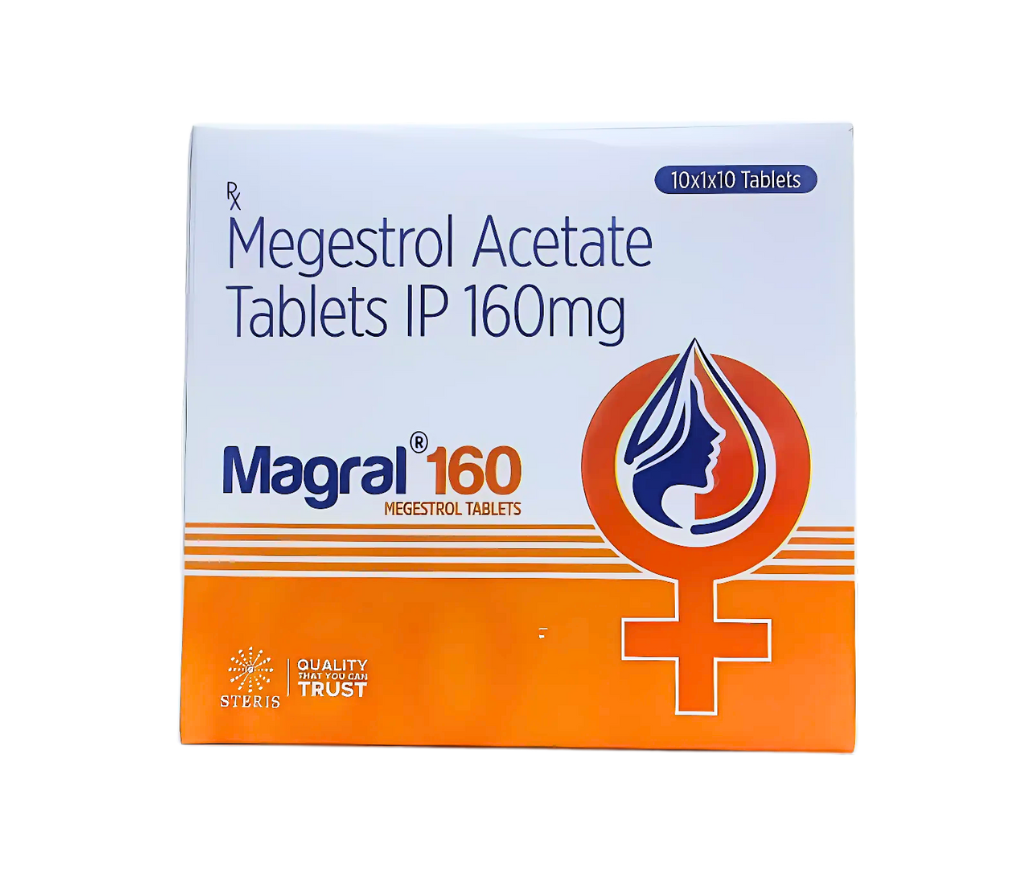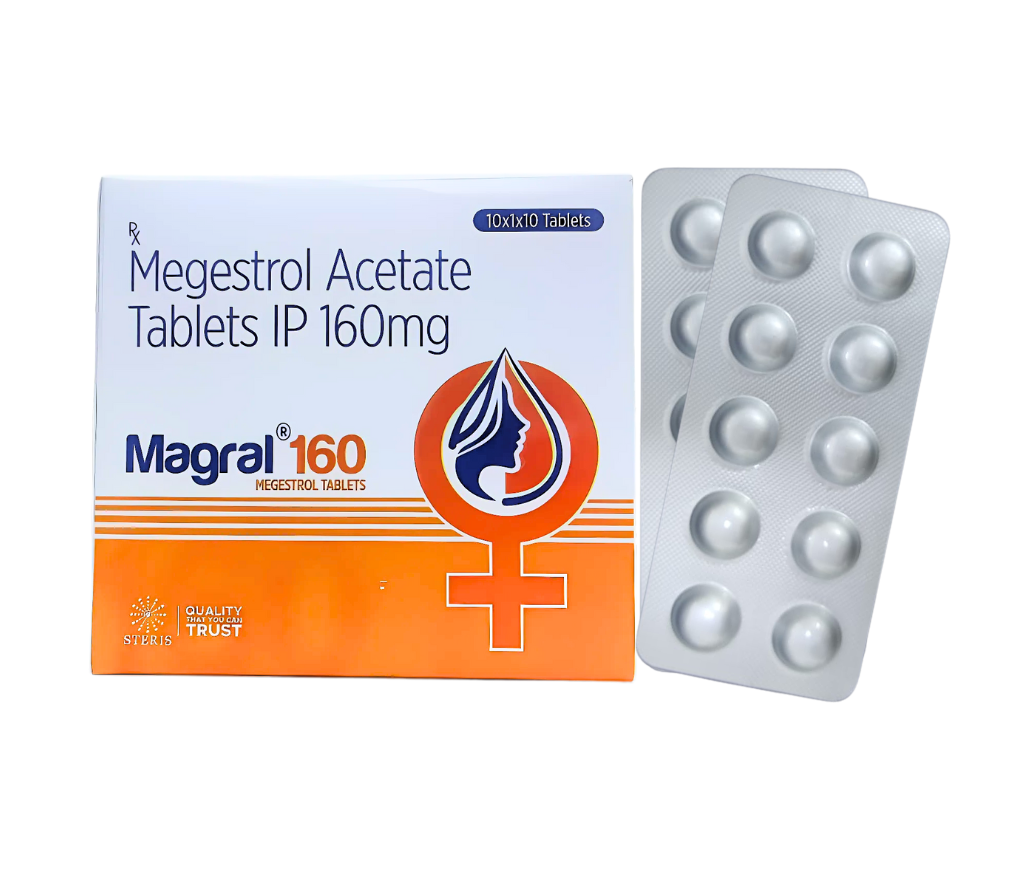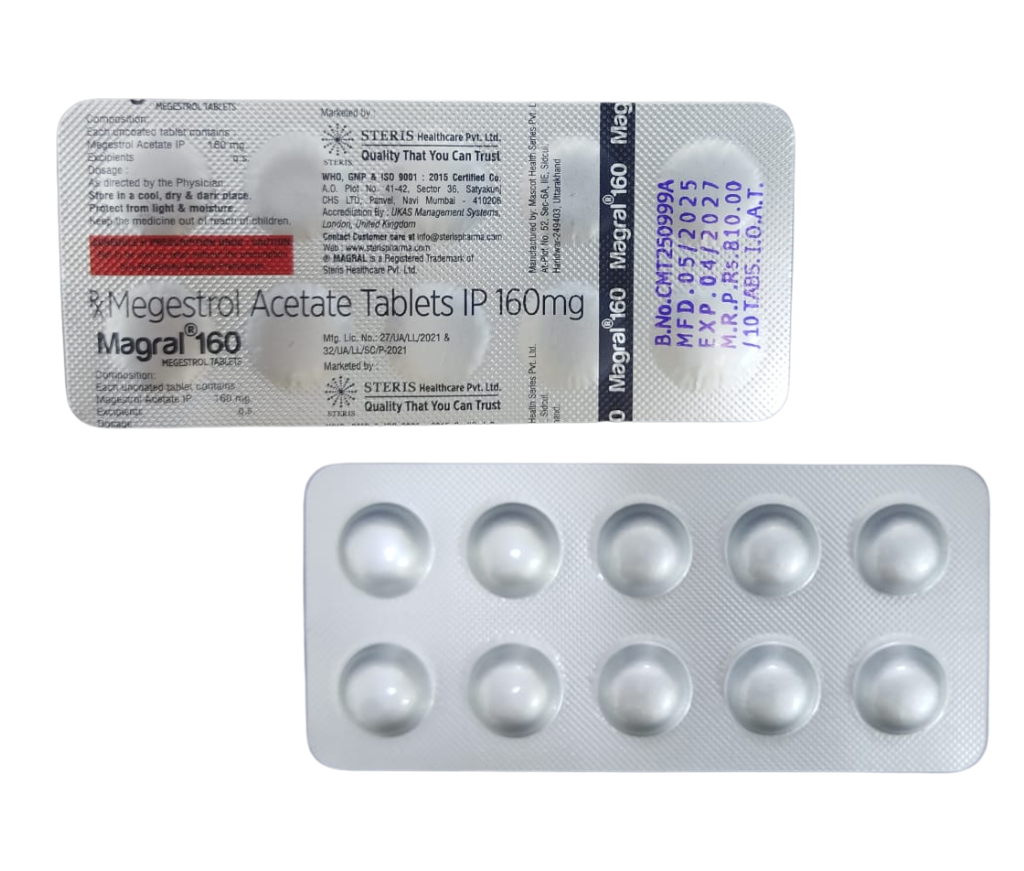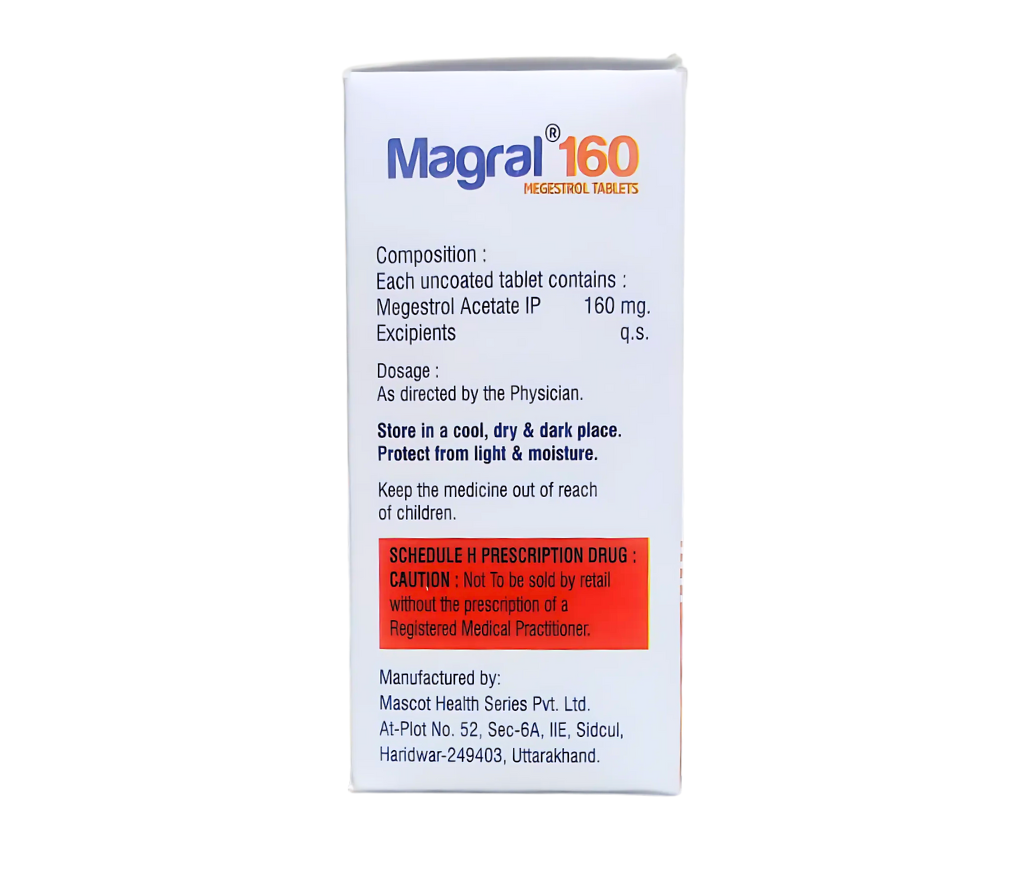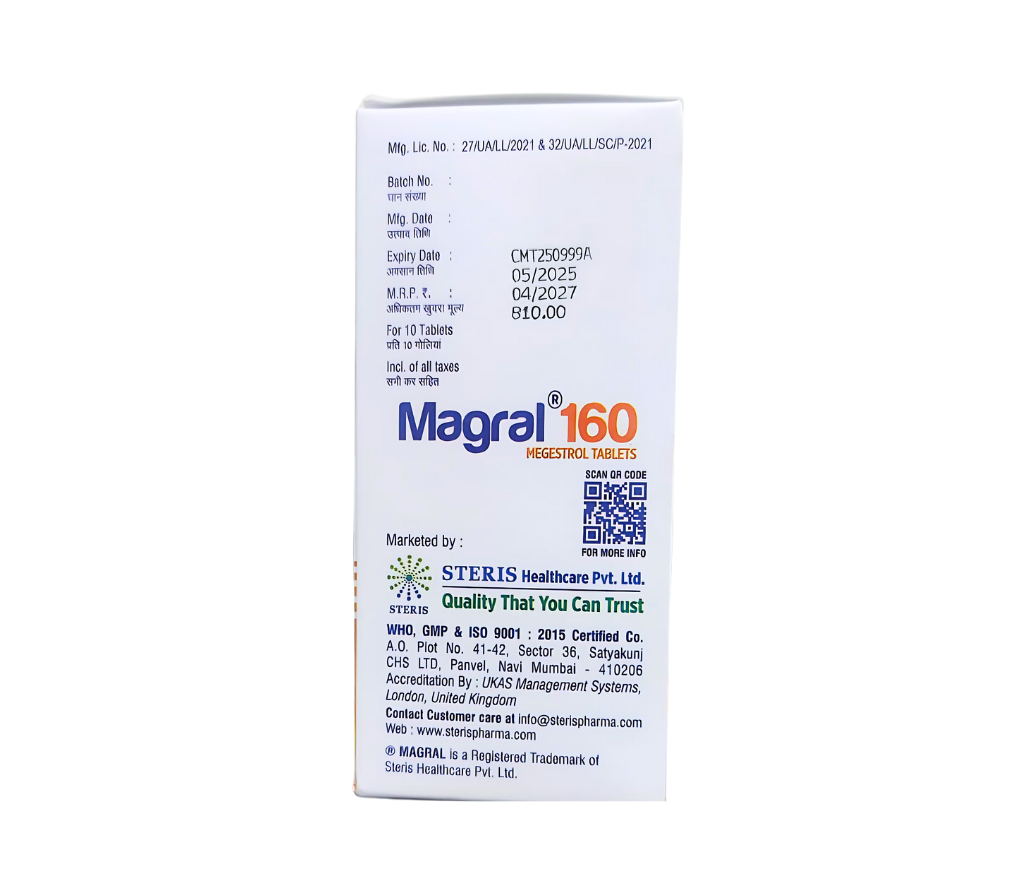MAGRAL 160
Item requires a valid prescription
Manufactured By Steris Healthcare Pvt Ltd
Composition Megestrol Acetate 160 mg
Rs 531.57
MRP Rs 759.38
(30% OFF)
Includes all taxes
Package SIZE
( FOR 10 TABLETS )
100% Authentic
Products
Free
Shipping*
Products
Return Policy
Description:
MAGRAL 160 is a pharmaceutical formulation containing the active ingredient megestrol acetate 160 mg, a synthetic progestin known for its multifaceted therapeutic benefits. This medication is widely recognized for its role in managing conditions associated with severe weight loss and appetite suppression. The primary action of MAGRAL 160 revolves around improving appetite and promoting weight gain, especially in patients suffering from anorexia, cachexia, or unexplained serious weight loss. Additionally, megestrol acetate acts as an antineoplastic agent, making it effective in treating specific types of hormone-dependent malignancies, such as breast and endometrial cancers. Its ability to stimulate appetite and slow wasting syndromes marks a critical intervention for patients with chronic illnesses and cancer-related anorexia.
What is MAGRAL 160?
MAGRAL 160 is an oral medication whose active component, megestrol acetate 160 mg, functions primarily as a progestin hormone. Progestins mimic the natural hormone progesterone and influence hormone-responsive tissues. MAGRAL 160 is utilized both for its hormonal effects, to combat certain cancers, and for its appetite-stimulating properties, helping patients regain lost weight and improve nutritional status. It is administered by prescription and taken orally, with dosages tailored according to the condition being treated and the patient’s response.
Uses of MAGRAL 160
-
To treat anorexia (loss of appetite) and cachexia (wasting syndrome), especially in patients experiencing serious unexplained weight loss.
-
To manage weight loss in chronic conditions such as cancer or HIV/AIDS.
-
As an antineoplastic agent in treating hormone-dependent cancers, particularly breast cancer and endometrial cancer.
-
To improve overall nutritional status in patients debilitated by chronic illness or cancer therapy.
-
In certain cases, used off-label for other hormone-related disorders or symptoms such as menopausal hot flashes, though this is less common.
Side Effects of MAGRAL 160
-
Weight gain (primarily through increased appetite)
-
Nausea and vomiting
-
Fluid retention or edema (swelling of limbs)
-
Vaginal bleeding or spotting
-
Changes in sexual function, including decreased libido or impotence
-
Headache and dizziness
-
Gastrointestinal distress such as constipation or diarrhea
-
Fatigue, weakness, or insomnia
-
Potential risk of blood clots or thromboembolism symptoms (e.g., limb pain, chest pain, shortness of breath)
-
Long-term use may lead to hormonal imbalances affecting bone density, glucose metabolism, and cardiovascular health
Patients should report any unusual symptoms promptly and undergo regular medical monitoring to mitigate risks.
Precautions Before Using MAGRAL 160
-
Inform your healthcare provider if you have a history of blood clots, cardiovascular disease, diabetes, or hormone-sensitive cancers.
-
Pregnancy and breastfeeding are contraindications; the medication should not be used during these periods.
-
Regular blood tests may be necessary to monitor hormone levels, blood sugar, and liver function.
-
Avoid sudden discontinuation without consulting your doctor to prevent withdrawal or rebound effects.
-
Be cautious if you have liver or kidney impairment, as dosage adjustments might be required.
Drug Interactions: What Drugs Interact With MAGRAL 160?
-
Hormonal therapies, including other progestins or estrogens, may alter the effectiveness or increase side effects.
-
Anticoagulants and blood thinners require careful monitoring due to altered clotting risk.
-
Drugs affecting liver enzymes (CYP450 inducers or inhibitors) can impact the metabolism of megestrol acetate, changing its blood levels.
-
Corticosteroids may have additive glucocorticoid effects, increasing the risk of side effects.
-
Medications affecting blood sugar control, such as insulin or oral hypoglycemics, may need dose adjustments, since MAGRAL 160 can alter glucose metabolism.
Conclusion
MAGRAL 160, with its potent ingredient megestrol acetate 160 mg, serves as a critical therapeutic option for patients experiencing significant weight loss due to anorexia, cachexia, or chronic disease. Its dual role as an appetite stimulant and antineoplastic agent makes it especially valuable in cancer care. While effective, it requires careful usage under medical supervision due to potential side effects and drug interactions. This medicine is best suited for patients who need to regain weight or manage hormone-dependent malignancies, underscoring its importance in supportive cancer care.

